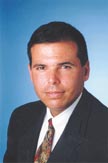Reverse Mortgage In Coral Gables
Cash-challenged seniors who want to stay in their own homes have kept reverse mortgages high on the public radar. Although the public has been generally hesitant to embrace them, their popularity continues to climb.
Reverse mortgages have been around since the 1960s, according to a 2005 report by the National Council on Aging. The National Reverse Mortgage Lenders Association recently reported the number of federally insured Home Equity Conversion Mortgages administered by HUD rose from 43,131 the previous federal fiscal year to an all-time annual high of 76,351, a whopping 77 percent increase.
Five of the top 10 reverse mortgage markets are in California. Also on the list: New York City, Phoenix, Boston, Denver and Coral Gables, Fla.
However, the reverse mortgage market is minuscule compared to that of regular mortgages. Reverse mortgages represent a drop in the bucket — about seven-tenths of 1 percent of regular mortgages.
The Pros
In general, a reverse mortgage converts home equity into cash in several different ways, ranging from monthly payments to an equity line to one-time payouts — or a combination. The amount you can borrow varies according to your age, the value of the home, current interest rates and loan fees.
Are reverse mortgages a good idea? Most news stories imply they are. Reports suggest reverse mortgages can be a source of ready cash when it’s needed — similar to other investments. But, like anything that impacts your bottom line when your earning potential is limited, taking out a reverse mortgage isn’t a no-brainer. That’s why candidates for these mortgages should consider both the benefits and the drawbacks before jumping in.
The cons
The front load is very high. Lenders like reverse mortgages because “these (loans) are very profitable to write in the short term.”
Front-loading refers to upfront costs, paid out of the home’s equity at closing. As with conventional mortgages, reverse mortgage lenders make money the old-fashioned way: through interest, origination fees and points. The interest rate varies according to the market. However, closing costs are significantly higher with reverse mortgages.
In addition, borrowers continue to be responsible for real estate taxes, conventional homeowners insurance and home repairs, and have the added burden of paying for mortgage insurance, too.
Why would borrowers have to pay mortgage insurance? After all, that insurance is required for regular mortgages if borrowers don’t have a large enough down payment, and its purpose is to protect lenders in the event of a default. With a reverse mortgage, there’s no such risk to lenders.
But other risks exist. Mortgage insurance guarantees the lender will receive its full repayment. For example, a decrease in the property’s value adversely affects the lender’s reimbursement. Mortgage insurance also covers the lender in the event the mortgage is held over a very long period of time and accrued interest exceeds the value of the home.
Just like conventional loans, the lender only recovers what it’s actually owed. After the lender’s loan, fees and interest are repaid, anything left goes to the homeowner or heirs.
Refinance instead?
I believe seniors should consider borrowing against the value of their homes only as a last resort. If there’s no way around it, it’s smarter to refinance as a 30-year fixed loan.
Here’s how that would work: You own a home valued at $300,000. You find yourself in need of a large amount of cash for major home repairs and want a lump sum in the bank for future emergencies. You borrow a combination of cash and upfront costs (rolled into the loan) valued at $100,000 at 6 percent. Exclusive of taxes and insurance, you’d be paying back a little under $600 per month on a 30-year loan. And you wouldn’t need mortgage insurance because you still have plenty of unencumbered equity.
The rub here is the monthly payments. However, the fees for this type of loan are lower, and your remaining equity isn’t subject to interest and other costs associated with a reverse mortgage.
True, in a conventional mortgage, the money must be paid back starting right after closing, while reverse mortgages don’t fall due until the home is vacated. But, since the payments on a conventional mortgage are stretched out over a longer period of time, they’re lower and more manageable.
In the case of a reverse mortgage, younger borrowers can’t cash out as much equity as older borrowers. To qualify for a reverse mortgage, you must be at least 62 years old. Since banks are repaid when the house is sold, it’s quite possible a lender might have to carry the note for 20 to 25 years or more. For that reason, a 79-year-old is a much more attractive loan candidate from the bank’s perspective.
As for the borrower, whether he lives six months or 30 years after the loan is closed, he still pays stiff upfront fees. Of course, statistically speaking, older borrowers are less likely to accumulate as much interest as younger ones.
The matter of MedicaidDepending on where you live, the proceeds from a reverse loan could prove a barrier to qualifying for Medicaid, which counts loan proceeds as an asset.
Although each state differs in the fine print, untapped equity in the home is not considered an asset in determining Medicaid eligibility, as long as it’s owner-occupied. Recent federal legislation placed the home exemption ceiling at $500,000.
For a homeowner with property worth more, there’s definitely an argument for obtaining a reverse mortgage and then spending down the cash. But that cash is also subject to Medicaid’s new time limitations on asset reduction. Talk to an eligibility specialist early in the process to see where you stand.
Additionally, the terms of many reverse mortgages knock homeowners out of their homes after a period of absence, which varies from lender to lender. He says some reverse mortgages require the full loan balance plus accrued interest be repaid when the house is vacated by the owner for a specified period of time — like a prolonged, but temporary, nursing home visit.
“Can you imagine if you have nowhere to go to?” What incentive do you have to get better?
Views of an advocate Eric Tyson, author of “Mortgages for Dummies” and other books about personal finance, tends to see reverse mortgages as valuable retirement tools when homeowners understand them.
A former financial counselor, Tyson says counseling — mandatory before entering into a reverse mortgage — educates seniors to which lenders are reputable and which fall short.
“They should take their time, do their homework, do some reading about the topic,” he says. “There’s a lot of jargon and lingo they should get down.”
He agrees fees associated with reverse mortgages run high. “That’s usually the light-bulb moment for prospective borrowers,” he says.
But, he adds, traditional 30-year mortgages also come with high price tags. Older people can find it more difficult to qualify for a mortgage since many retirees no longer work and have limited incomes. “People lose homes all the time when they default on their mortgage,” Tyson says.
The majority of Americans rely on Social Security for their retirement. Problem is, there’s often little to supplement Social Security — except the home.
“What are you going to do with that equity? You can’t take it with you,” he says.
A factor that may muddy the waters — the influence of other family members or caretakers who push the senior toward a reverse mortgage for selfish reasons, or counsel against it because they want to inherit the property intact. He advises anyone considering a reverse mortgage to take a good hard look at what other people stand to gain from the situation — if anything — while considering outside advice.
The emotional impact- You’re facing your own mortality. In addition, reverse mortgages impact where the homeowners live, how medical bills will be paid and what the future holds in as much as financial security is concerned. Most older adults nurture the idea of leaving something to their children and believe their home is sacrosanct. Parting with even a little of its value can be traumatic.
Almost all of the downside of reverse mortgages can be weighed before moving forward. Read about them (the Federal Trade Commission has some great information). Also, get several quotes from reputable banks, understand the implications of ill health and find out how a reverse mortgage could impact Medicaid eligibility.
Ultimately, the decision is yours. Base it on what’s right for your individual needs.



No comments:
Post a Comment